│21-24 June 2022
│Brussels, Belgium and online
│https://www.one2022.eu/
Helsinki Chemicals Forum
│8 – 9 June 2022
│Helsinki Expo and Convention Centre
│https://helsinkichemicalsforum.messukeskus.com/
Colloquium Spectroscopium Internationale XLII
│30 May – 3 June 2022
│Gijon, Spain
│https://bit.ly/39iW231
XLVI “Attilio Corbella” International Summer School on Organic Synthesis
│12 – 16 June 2022
│Palazzo Feltrinelli Via Castello 3, Gargnano BS, Italy
│https://bit.ly/3v6V6FW
Mechanochemistry Meets Industry II – Economic considerations and business perspectives
│10 June 2022
│Via Università 40 – Cagliari, Italy
│https://bit.ly/37vWdHs
10th International Conference on Mechanochemistry and Mechanical Alloying
│6 – 10 June 2022
│Hybrid: online and Cagliari, Italy
│https://bit.ly/3tXg0Xw
Calls for funding and awards
The EuChemS Walter Thiel Award In Computational and Theoretical Chemistry
The call for nominations for The EuChemS Walter Thiel Award In Computational and Theoretical Chemistry is open. You are kindly invited to submit a nomination using the online form by 31 May 23:59 CEST
ECC8 Grant
The call for the EuChemS Chemistry Congress fellowship scheme – ECC8 Grant is open. Applicants have until 7 June 2022 20:00 CEST to submit their application.
European Young Chemists’ Award (EYCA)
The call for the European Young Chemists’ Award (EYCA) is open. You have until 30 June 2022 20:00 CEST to submit a nomination.
Horizon Europe Calls
- Efficiency boost of solar thermochemical water splitting
Deadline: 31 May - Sampling methodology and quality assessment of HRS
Deadline: 31 May - Ammonia powered fuel cell system focusing on superior efficiency, durable operation and design optimisation
Deadline: 31 May - Development of validated test methods and requirements for measuring devices intended for measuring NG/H2 mixtures
Deadline: 31 May - EU Prize for Women Innovators
Deadline: 18 August - Monitoring, reporting and verification of soil carbon and greenhouse gases balance
Deadline: 27 September - Mediterranean sea basin lighthouse – Actions to prevent, minimise and remediate chemical pollution
Deadline: 27 September - Innovations for soil improvement from bio-waste
Deadline: 27 September
2022 FRANZOSINI AWARDS
The call for the IUPAC 2022 Franzosini Award – Call for Nominations – IUPAC | International Union of Pure and Applied Chemistry is open. Applicants have until 31 May 2022 to submit their application.
European Food Safety Authority (EFSA) public consultations
number of consultations put forward by the European Food Safety Authority (EFSA) are currently open.
- Draft guidance on the data required for the risk assessment of flavourings to be used in or on foods
Deadline:19 June 2022
- Assessments following the clock stop on endocrine disruption properties for the active substance flutolanil in the context of the pesticides peer review
Deadline 24 June 2022
You can take a look at it all here.
EuChemS is an official accredited stakeholder of the European Food Safety Authority (EFSA).
European Chemicals Agency (ECHA) public consultations
A number of consultations put forward by the European Chemicals Agency (ECHA) are currently open.
- Consultations following ECHA’s Executive Director Requests to the Committees – ECHA
Deadline: 20 June 2022
In addition, a range of Restriction proposals, Testing proposals and Harmonised classification and labelling consultations are also available – we invite you to take a look at them here.
EuChemS is an official accredited stakeholder of the European Chemicals Agency (ECHA).
European Commission Public Consultations and Roadmaps
A number of consultations and roadmaps put forward by the European Commission are currently open:
- Detergents – streamlining and updating the EU rules
(public consultation)
Deadline: 25 May 2022
- Review: Restriction of the use of hazardous substances in electronics
(Public consultation)
Deadline: 2 June 2022
- Circular economy monitoring framework – Revision
(Call for evidence)
Deadline: 3 June 2022
- EU chemicals strategy for sustainability – Cosmetic Products Regulation (revision)
(Public consultation)
Deadline: 21 June 2022
- Legislation for plants produced by certain new genomic techniques
(Public consultation)
Deadline: 22 July 2022
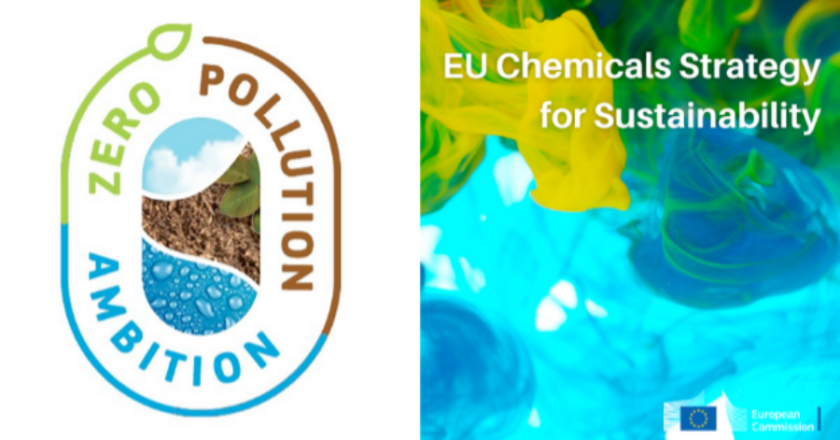
EuChemS continues policy advisory activities
EuChemS continues to carry out its policy activities by contributing to the high-level European Commission initiatives it was invited to.
On 25 April, EuChemS Secretary-General Nineta Hrastelj represented the organisation on the second meeting of the Zero Pollution Stakeholder Platform. This platform aims to gather stakeholders from various areas to assist in achieving the Commission’s Zero Pollution Ambition. The meeting consisted of a discussion between Commision Directorate General for Health & Food Safety (DG SANTE), Directorate-General for Environment (DG ENV), the European Committee of the Regions (ECR) and the representatives of the platform.
On 18 May, EuChemS president Floris Rutjes will take part in the 3rd meeting of the High Level Roundtable on the implementation of the Chemicals Strategy for Sustainability on behalf of EuChemS. This roundtable is focused on exchanging views between different stakeholders, and drafting policy recommendations to achieve a toxic-free environment. The meeting is planned to revolve around the draft report “Research and Innovation for the transition to safe and sustainable chemicals” – hence it will likely be attended and co-chaired by Joanna Drake, Deputy Director General DG Research and Innovation, alongside Patrick Child – however, the agenda is still subject to change at the time of writing.
You can find all information about past and present EuChemS policy advisory activities here.
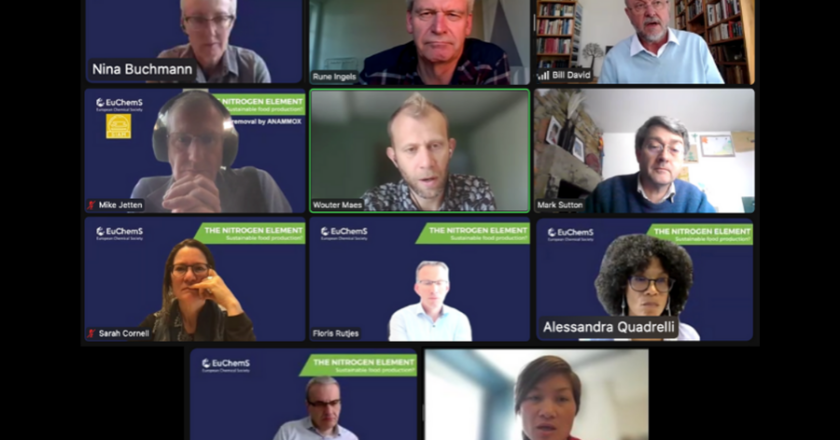
“The Nitrogen Element – Sustainable food production?” workshop successfully held
A versatile group of experts from a wide range of backgrounds from academia to industry discussed sustainable agriculture and ammonia production during the most recent EuChemS policy workshop “The Nitrogen Element – Sustainable food production?” The event, held on 26 April, had a significant turnout, with participants attending from all around the world.
The workshop was chaired by Alessandra Quadrelli, and was opened by EuChemS president Floris Rutjes. In the morning session, Nicola Armaroli introduced the EuChemS periodic table, Nina Buchmann talked about the nitrogen cycle’s role in planetary boundaries, and Thoa Thi Minh Nguyen from Topsoe brought up the topic of a sustainable future in agriculture. In the afternoon, we heard much about innovative solutions, such as renewable fertilizers, from Rune Ingels, CTO of N2Applied, precision agriculture using drones from Wouter Maes, and the use of Annamox bacteria from Mike Jetten. Hydrocarbons, Earth System Sciences, and the UN environment committee’s policies in relation to nitrogen were also discussed by Bill David, Sarah Cornell and Mark Sutton respectively. Both the morning and afternoon sessions were concluded with enlightening panel discussions, polls and responses to the audience’s questions.
The recording of the event will soon be available on the EuChemS YouTube channel. Until then, you can refresh your memory by taking a look at the twitter thread recapping the events.
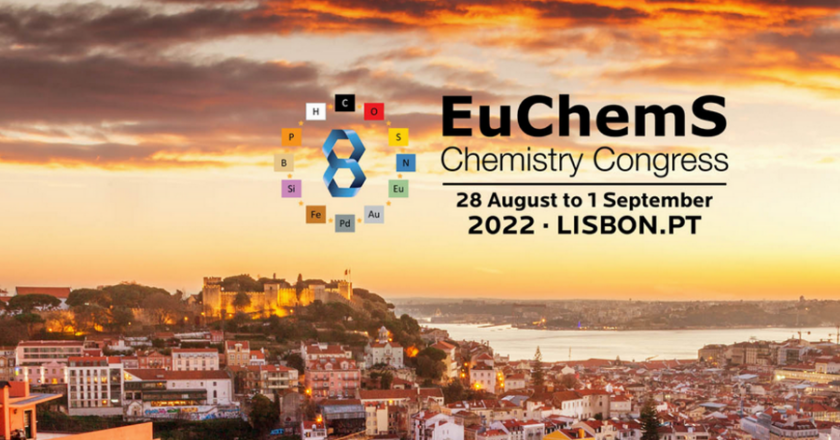
EuChemS at ECC8: awards, exhibition, thematic sessions
Prestigious EuChemS awardees will talk at the 8thEuChemS Chemistry Congress (ECC8) late this August in Lisbon. Awardees of the European Gold Medal Dame Carol Robinson (2022 awardee) and Michele Parrinello (2020 awardee) will hold plenary speeches during the opening ceremony of the congress. You will also be able to listen to the speeches of the recipients of the EuChemS Lecture Awards, and last, but not least, EuChemS Service Awards winners will receive their honours at the event as well.
Alongside the award ceremonies, EuChemS is organising thematic sessions. On 30 August, a panel of high-profile participants from the Royal Chemistry Society, American Chemistry Society, GDCh, and EuChemS will discuss the contributions of chemistry to the Sustainable Development Goals during the discussion titled “Chemists’ contributions to the global approach for tackling pollution”. Later that day you will also be able to hear about chemistry – and natural sciences in general – from a different perspective: the following EuChemS session will be about the unique culture of the scientific community, and the effect this has on public policy.
In addition to events and ceremonies, you will be able to approach EuChemS representatives in the exhibition hall during the entire congress. In the EuChemS expo booth, you can learn about ongoing projects and initiatives. Keep an eye on updates about the stand in the next month’s Brussels News Update, as well as on the ECC8 website.
The ECC8 will be held from 28 August to 1 September, 2022 and we are very much looking forward to meeting you there. You can find deadlines, registration information and preliminary programmes at https://euchems2022.eu/ – and you can also follow the event on Twitter. Be sure to check back regularly to remain up to date with the events.

ALLEA calls for the modernisation of the patent law to suit open science
The European Federation of Academies of Sciences and Humanities (ALLEA) have published a statement on the relations of the intellectual property (IP) law and open science in April. The statement concludes that, while the IP law provides a framework in which open science can operate, the patent law is not up to the standards of open science, therefore ALLEA calls for its modernisation.
The report states that, in order to align with open science principles, greater clarity about non-commercial knowledge use and the introduction of “grace periods” of at least one year allowing open publication are needed. In addition, ALLEA states that public funding should not be substituted by patent income, and only used as a potentially useful supplement. Lastly, the statement criticises the use of patent activity as an evaluation method. It argues that using it as such may incentivise collecting non-performing patents, the prioritisation of which brings no benefits, and wastes resources.
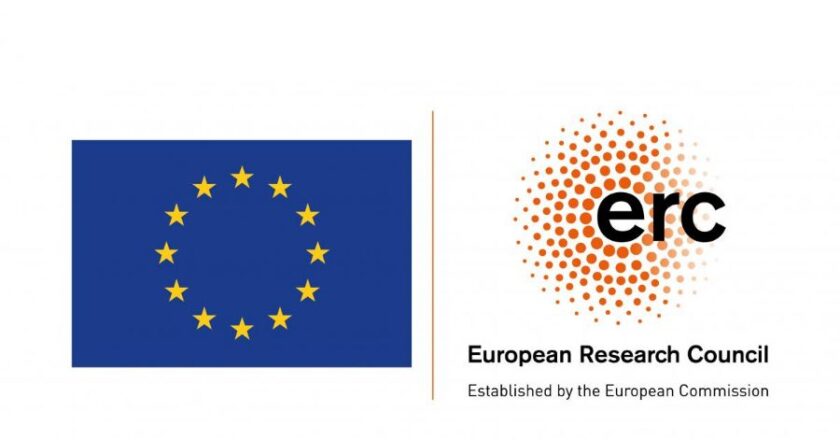
ERC publishes 2021 grantees, closes 2022 applications and releases figures
On 28 April, applications for the European research Council (ERC) Advanced grants were closed. The ERC Scientific council allocated an approximate 555 million euros to these projects altogether, although this number may still be subject to change. This could fund 223 advanced grants, the selection of which has recently begun. Results are expected to be announced in April 2023. The total funding pool is lower than last year’s 624.6 million euros, which funded 253 researchers, as the ERC recently published when announcing the winners of the 2021 Advanced Grants.
The 2021 grantees are coming from 21 EU Member States and associated countries. It’s estimated that these grants will lead to the creation of 2300 new jobs in the field of research. Details and figures of the awarded 2021 grants can be found here.
ERC released preliminary data on this year’s applications, which showed that the total number of proposals were lower than 2021. The gender balance increased slightly: compared to last year, when 20,8% of the applications were made by women (although they received more than 25% of the total grants), in 2022 this number climbed to 23%. However, this still means that less than a quarter of the applications were made by women, which certainly leaves room for improvement. Regarding subjects, the number of applications for physical sciences and engineering was the highest by a significant margin. Social science and humanities took the second place, closely followed by life sciences.
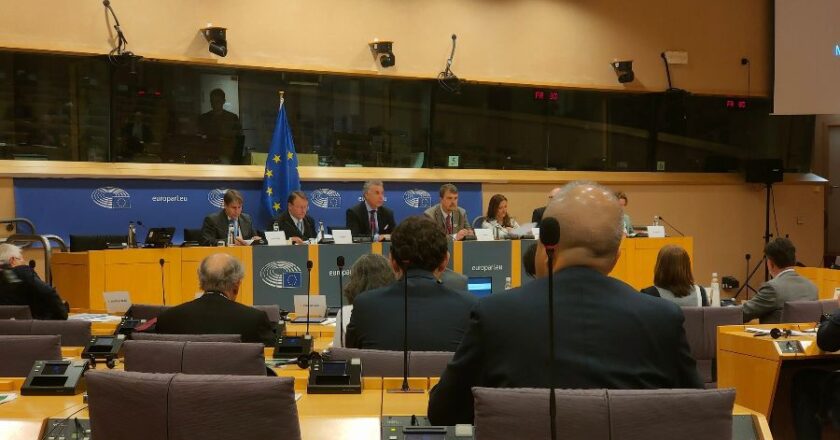
STOA and STS looks at expanding Green Deal beyond the borders of Europe
Science and Technology in Society forum (STS forum) and the European Parliament’s Panel for the Future of Science and Technology (STOA) jointly organised the high-level conference “From a European to a Global Green Deal”. Introductory remarks were made by STOA Chair Christian Ehler and STS chairman Hiroshi Komiyama.
Amongst the numerous high-profile speakers of the first panel were Paula Abreu Marques, Deputy Director of DG Energy who outlined the European policy landscape and briefly mentioned energy policy proposals to be published soon, as well as European Research Council president Maria Leptin, who pointed out the importance of Fundamental research and Transnational contribution. She also encouraged colleagues across the globe to collaborate with ERC. The second panel further promoted reaching beyond the borders of Europe when establishing scientific partnerships to address global challenges. Moderated by Ismail Serageldin, Founding Director Emeritus of The Library of Alexandria, Egypt, this panel was consisting of speakers from Japan, Thailand and Europe.
MEP Christian Ehler, chair of the event’s co-organiser STOA expressed his strong stance on the the EU’s need for unity on matters of science, and the importance of scientific policymaking to Science/Business earlier this month. He also called the parliament to turn STOA into a fully-fledged science think-tank, and extend its jurisdiction by establishing an academic freedom monitoring programme on European and global levels.
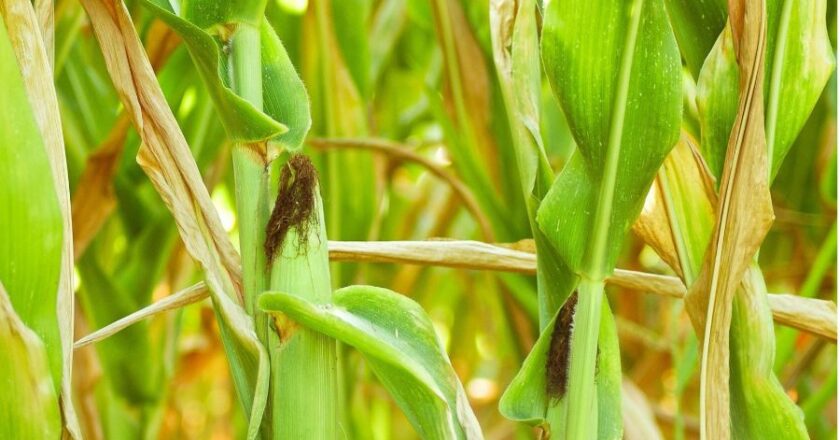
Consultation on loosening GMO regulations stirs debate
The European Union’s strict stance on genetically engineered crops may loosen after a consultation opened on the 29 April. These developments were brought forward due to the increasing need for ensuring food security and keeping the agriculture business competitive in light of the long-term changes caused by global warming as well as the immediate effects of the Ukraine-Russia conflict on the food market.
Health and food safety commissioner Stella Kyriakides supports deregulation as she emphasises new genomic techniques (NGTs) potential to build a more resilient and sustainable agri-food system. Her statement is in line with the results demonstrated by the Commission’s recently released fact sheet.
The Greens/EFA group however retains its staunch anti-GMO stance, arguing that long-term risks are still unknown, and that deregulation may give GMO patent holders unfair market advantages. Renew Europe group supports “proportionate” regulation for NGTs, as they expressed in their position paper. This would also support the change of laws on genetically engineered crops which are currently one of the strictest in the world.
You can read the details and the background on the EU’s GMO policy here. You can contribute to the consultation as well, which you will also find in the Consultations & Roadmaps section of our Brussels News Updates.
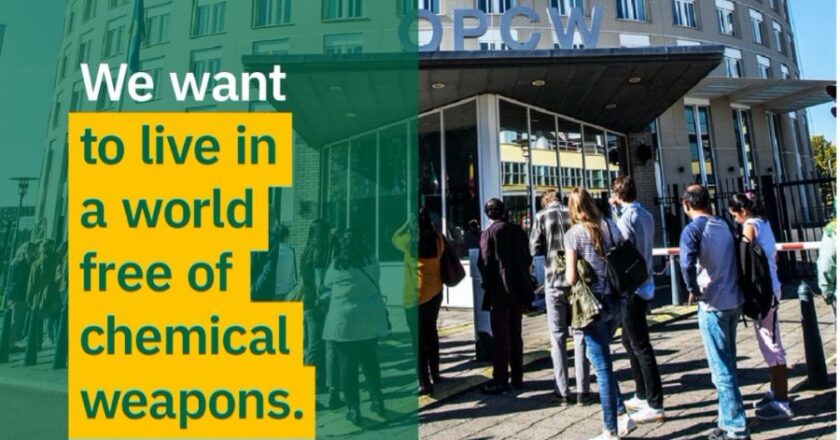
Chemical Weapons Convention came into force 25 years ago
29 April marks the 25th anniversary of the Chemical Weapons Convention (CWC) – on this occasion, the Organisation for the Prohibition of Chemical Weapons (OPCW) called all CWC members and signatories – including EuChemS – to reaffirm their commitment to make the world free of chemical weaponry. Major international and European institutions acknowledged the anniversary and emphasised the importance of the convention, including, but not limited to the European Council, the EEEA, and the United Nations. EuChemS also expressed its support of CWC. The extensive list of those who reiterated their support can be found here.
Since its entry into force in 1997, the CWC made significant strides towards chemical weapon disarmament: 193 states are participants, making 98% of the world population safe from chemical weapons. Under the aegis of the convention, 99% of chemical weapons stockpiles and 74 out of 97 declared production facilities were destroyed. 23 other sites were converted for peaceful purposes. The OPCW carried out 4939 inspections, and possesses 24 environmental, and 20 medical sites.
More info and news can be found on the official OPCW webpage.
EuChemS expresses its strong support for the prohibition of chemical weapons and responsible science, and calls for the ethical mobilisation of all chemists to ensure that chemistry is only used for the betterment of humanity.
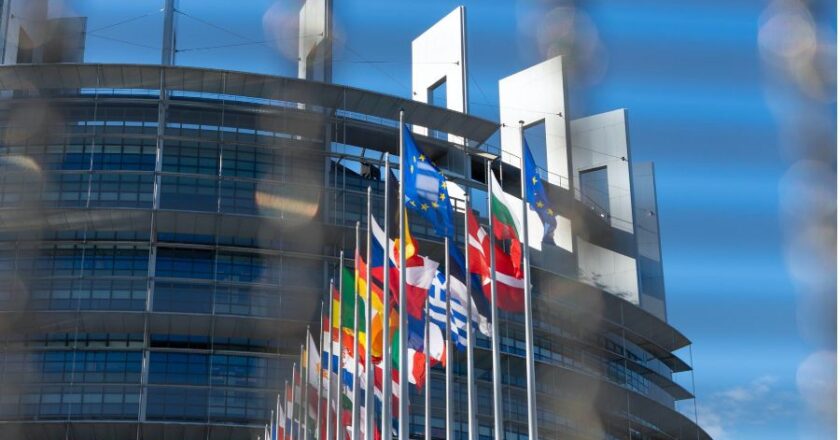
Conference on the Future of Europe concludes on Europe Day
9 May marks Europe Day – on the anniversary of signing the Schuman Declaration, European states celebrate the unity of the continent. The closing ceremony of the year-long Conference on the Future of Europe was held on this symbolic day.
The Conference on the Future of Europe gave an opportunity to citizens to actively take part in the democratic process, and engage with the European Union and its upcoming prospects. This discussion culminated in 49 proposals, each consisting of a key objective and numerous measures. The proposals covering a wide range of areas will be delivered as a report to the European Parliament.
Amongst the key themes, environmental and educational matters can be found. The set of proposals urges the EU to focus on circular economy and provide up to date scientific environmental information to citizens, and calls for a comprehensive, coordinated pan-European educational area.
You can read more about the entire conference here, and you can access the full list of proposals here.

